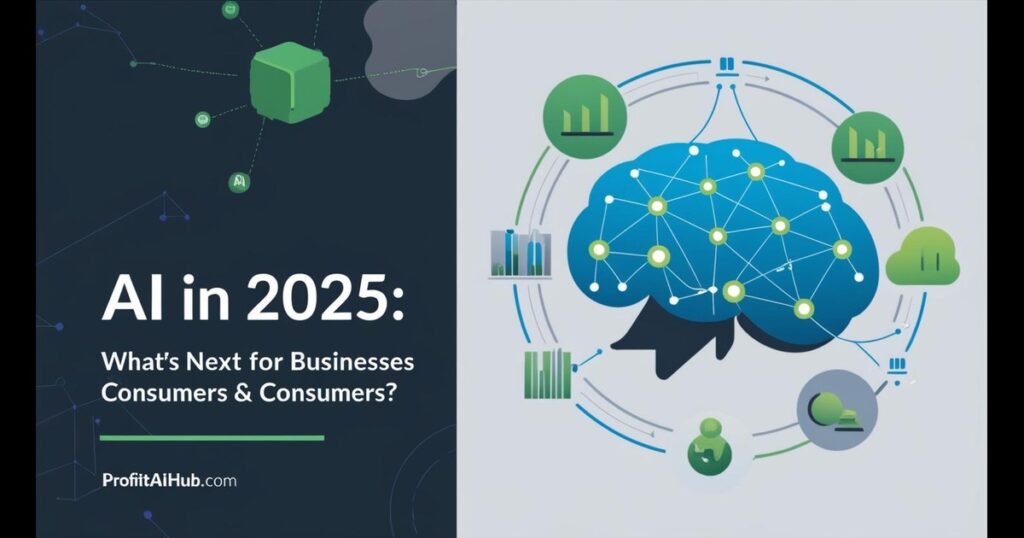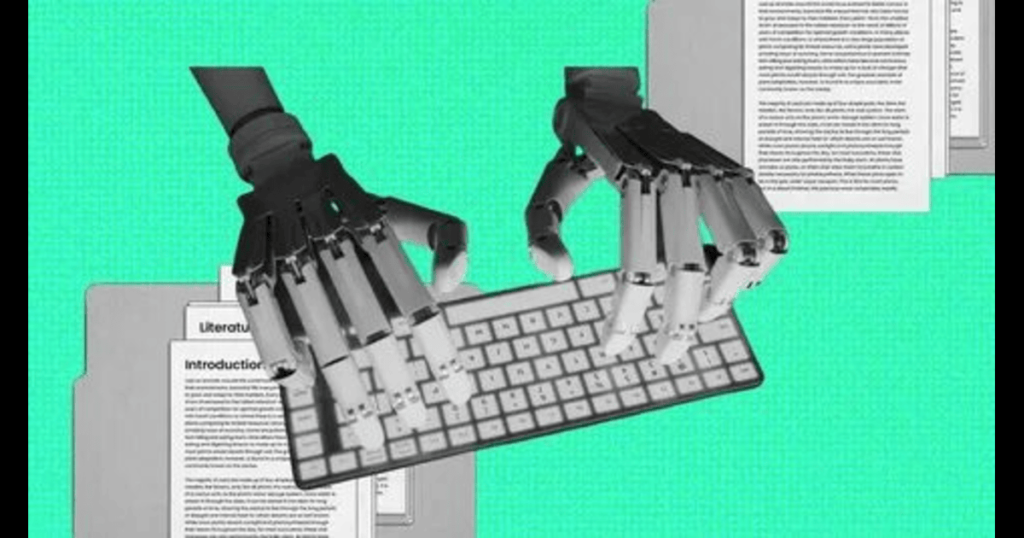The excitement about artificial intelligence is not just noise anymore. It’s fast becoming an essential aspect of our working and living. Looking forward to 2025, it’s evident that artificial intelligence is ready to go significantly more fitted into our everyday lives, thereby revolutionizing companies and changing the consumer experience thrillingly. This time around, it is artificial intelligence powered by intelligent technologies learning and changing around us, but it’s akin to the internet boom all over again. Learn AI in 2025 in this article.
Artificial intelligence transforms the corporate landscape.
Already, AI is causing major changes in the business sector, and this tendency will increase. Not only will the tech giants profit, but organisations of all sizes will find AI technologies more available and cost-effective.
Automation’s Energy
For example, the automation of repetitive duties will release human personnel to concentrate on more clever and strategic efforts. It could be a true productivity game-changer as less time spent in data entry means more time for creativity.
Wiser Interaction with Customers
Moreover, expected are more advanced AI-driven chatbots will transform customer support. These won’t be the clunky, frustrating robots of history. Rather, they will be able to answer difficult questions, give bespoke assistance, and even predict customer demands. The result is 24/7 availability, faster response times, and a smoother experience for all parties. Try to think about getting immediate help with something at 3 a.m. – that is the sort of convenience AI can offer.
Data Driven Decisions
Furthermore, becoming more important for companies is the capacity of artificial intelligence to process enormous quantities of information. It can help to find patterns, grasp client behavior, and create better educated judgments. Effective marketing strategies, streamlined product development, and a better grasp of the competitive terrain may all result from the knowledge obtained via artificial intelligence-driven analytics. It is as if a highly intelligent analyst is constantly working behind the scenes.
How artificial intelligence will affect people &guestimates; everyday lives.
Consumers are also facing a sea change, not just companies affected by artificial intelligence in 2025.
Smart Residences
Already known smart home systems will become even more intelligent and more connected, able to forecast our priorities and wants. It might mean your thermostat changes automatically depending on your schedule and the outside conditions, or your refrigerator recommends foods based on what you already have.
Bespoke Entertainment
With artificial intelligence as well, our entertainment consumption patterns are probably changing. Movies, music, and games will get even more tailored advice, therefore aiding us in finding things we actually enjoy. It is akin to having a personal curator always studying your preferences and recommending fresh favorites for all your entertainment needs.
Improvements in medicine
From helping with diagnosis to customizing treatment plans, AI is also anticipated to have an increasing influence in medicine. Picture artificial intelligence systems assisting physicians in earlier, more accurate disease detection, hence improved patient results. There is great and very encouraging potential for artificial intelligence to enhance our health and well-being.
Going Forward: Possibilities and Obstacles
The upside of AI in 2025 is excellent; nevertheless, it also presents challenges. Concerns regarding data privacy, algorithmic bias, and potential job market effects must be addressed. As artificial intelligence starts to more deeply permeate our lives, these are vital discussions that have to take place.
AI’s Increasing Position in Custom Healthcare and Wellness
Furthermore, is anticipated that the growing importance of artificial intelligence in health it goes beyond simple administrative activities to help with more serious issues, including diagnostics, personalized treatment plans, and even preventive care. Suppose AI algorithms are going through medical images with more accuracy and speed than people do, assisting doctors in earlier and more precise diagnosis of cancers and other diseases. Powered by AI, wearable gadgets would constantly track critical signs of life and give customized tips about our health and wellbeing, therefore alerting us to any problems and recommending active living modifications. The possibility of artificial intelligence transforming healthcare, therefore making it more exact, proactive, and available, is vast and very promising for advancing general public health.
Dealing with uncharted terrain: possibilities and critical issues
By 2025, the quick development and general acceptance of artificial intelligence will offer a treasure trove of amazing possibilities for social improvement as well as financial expansion. Still, this transformative force has its own major difficulties and ethical concerns we must manage early to guarantee a fair and bright future. Open and honest dialogue about topics including data privacy, algorithmic bias, the possible impact on the job market, and strong regulatory frameworks is essential.
The Vitalness of Ethical Artificial Intelligence.
Most important will be the ethical evolution and use of artificial intelligence. It is about guaranteeing that artificial intelligence systems are impartial, open, and responsible. This calls for deliberate thinking on the societal consequences and active actions to help reduce possible dangers. It is like constructing a powerful tool—we have to ensure it is used for the good of everybody and judiciously.
Embracing the Future Powered by Artificial Intelligence
Just starting is the trip into an AI-driven future, and 2025 seems to be oscillating. This is a period of significant creativity and change, offering businesses and customers thrilling opportunities. It will call for us to be flexible, receptive, and eager to welcome the changes ahead.
- Key Takeaways:
- Companies: Expect more sophisticated customer service via advanced AI chatbots, more automation on more difficult chores, and the capacity to use advanced AI analytics for more insightful data-driven decisions.
- From very smart and proactive smart homes and hyperpersonalized entertainment suggestions to maybe transformative developments in personalized healthcare and wellbeing control, look forward all facets of daily life to progressively personalized and seamless experiences.
- AI has great promise for improving the quality of living by advancements in fields including healthcare and accessibility, for the creation of creative products and services, and for significant increases in productivity.
Critical for a smooth transition will be meeting important moral questions regarding data privacy and security, reducing the risks of algorithmic bias producing unfair outcomes, and diligently managing the possible labor market impact by means of reskilling and upskilling programs. - For companies aiming to stay competitive and people negotiating a more wise world, acquiring an attitude of continuous learning and an openness to artificial intelligence-driven changes will be absolutely vital.
FAQs
Will AI have replaced my job by 2025?
Probably not.
How exactly can companies ready for the coming of artificial intelligence in 2025?
Businesses should kick off by defining areas where AI can offer the most value, from automating menial chores, enhancing customer service and acquiring data-driven insights.



